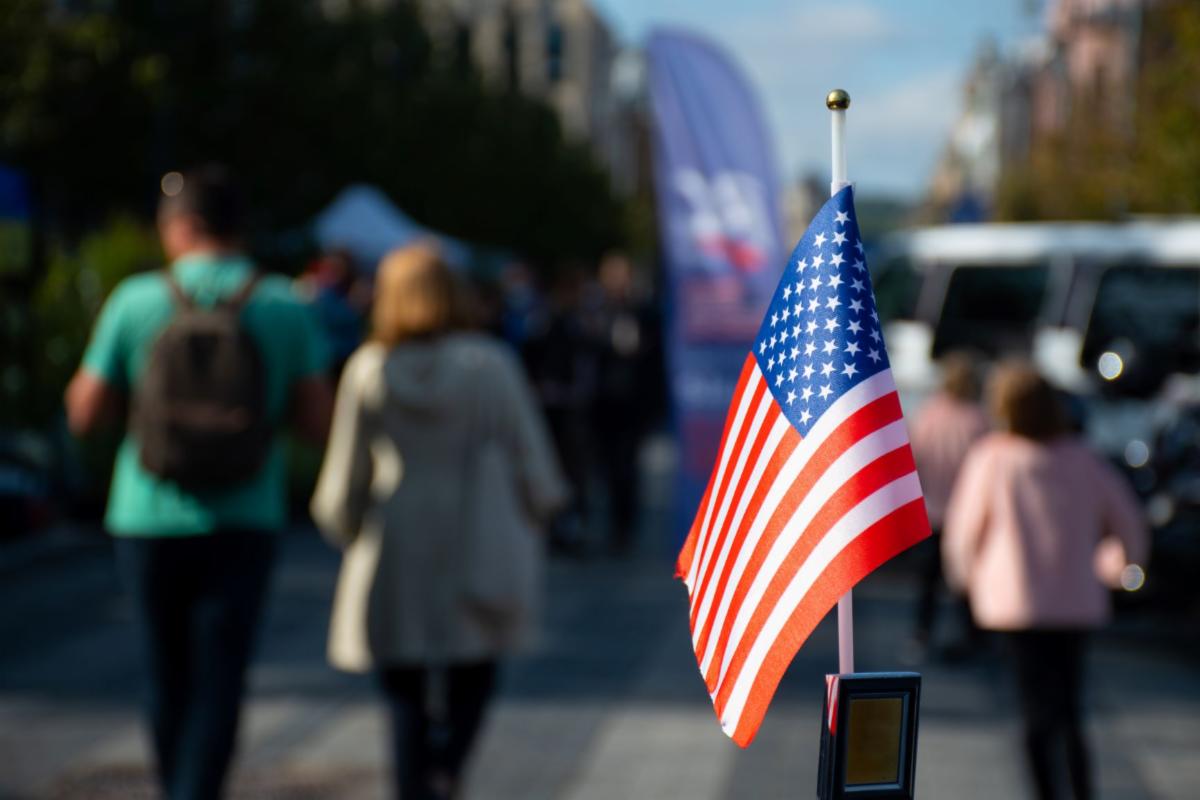THE BIG FIVE
 Leaked IRS documents show wealthy Americans and companies avoided taxes, spent millions on lobbying. Two separate reports released this week highlight what may be a new level of hardball in Washington D.C. ProPublica published details from an unknown source on what wealthy Americans paid—or didn’t pay—in taxes, saying it received 15 years of IRS data on thousands of people from a confidential source. The report showed that some of the country’s richest people paid just a fraction of their wealth in taxes, highlighting disparities in the American tax system. Another report released this week by Public Citizen, a known left-of-center advocacy organization, revealed that 55 corporations did not pay any corporate income tax in 2020 but spent $450 million on lobbying over the past six years. The published reports come as President Biden and Democrats look for ways to push through his trillion-dollar infrastructure proposal, pointing to tax increases for corporations as a key part of paying for the plan. To counter, bipartisan groups of senators are attempting to craft a plan to revitalize bridges and roads without tax hikes, costing close to $900 billion (about $2,800 per person in the US). Oh, and we should mention: publicizing details about people’s taxes is a felony punishable by up to five years in jail. Tax season may be over the debate is still heating up. Read more in the Wall Street Journal.
Leaked IRS documents show wealthy Americans and companies avoided taxes, spent millions on lobbying. Two separate reports released this week highlight what may be a new level of hardball in Washington D.C. ProPublica published details from an unknown source on what wealthy Americans paid—or didn’t pay—in taxes, saying it received 15 years of IRS data on thousands of people from a confidential source. The report showed that some of the country’s richest people paid just a fraction of their wealth in taxes, highlighting disparities in the American tax system. Another report released this week by Public Citizen, a known left-of-center advocacy organization, revealed that 55 corporations did not pay any corporate income tax in 2020 but spent $450 million on lobbying over the past six years. The published reports come as President Biden and Democrats look for ways to push through his trillion-dollar infrastructure proposal, pointing to tax increases for corporations as a key part of paying for the plan. To counter, bipartisan groups of senators are attempting to craft a plan to revitalize bridges and roads without tax hikes, costing close to $900 billion (about $2,800 per person in the US). Oh, and we should mention: publicizing details about people’s taxes is a felony punishable by up to five years in jail. Tax season may be over the debate is still heating up. Read more in the Wall Street Journal. Officials to use terrorism protocols to deal with cybersecurity threats, comparing it to 9/11. Weeks after what seems like endless cyberattacks, hacks, and security breaches, ransomware has reached a security threat level not seen since the early 2000s during the height of terrorist attacks on American soil. President Biden hopes to add two senior officials to his national cyber team to help protect Americans and the critical parts of the country’s infrastructure. Last year alone, the U.S. suffered around 65,000 ransomware attacks, putting the nation at risk for more extensive hacks that could have crippling effects. Experts say cyberattacks will continue to escalate, especially since preventing ransomware is extremely difficult, and from a criminal’s perspective, it works. After paying hackers $4.4 million, Colonial Pipeline CEO Joseph Blount testified before Senators this week that the company made the right choice. The ransomware was a major blow to East Coast markets, shutting down gas stations across 12 states for days and affecting an already disrupted supply chain across the nation. Officials compare the attacks to 9/11 and are coordinating the same protocols as it does for terrorism. Although the Justice Department traced and recovered much of Colonial Pipeline’s ransom payment, experts say that will not be the norm and strongly recommend that small businesses invest in cybersecurity protections, preparing themselves for the inevitable (if they haven’t been hacked already). Read more in Reuters.
Officials to use terrorism protocols to deal with cybersecurity threats, comparing it to 9/11. Weeks after what seems like endless cyberattacks, hacks, and security breaches, ransomware has reached a security threat level not seen since the early 2000s during the height of terrorist attacks on American soil. President Biden hopes to add two senior officials to his national cyber team to help protect Americans and the critical parts of the country’s infrastructure. Last year alone, the U.S. suffered around 65,000 ransomware attacks, putting the nation at risk for more extensive hacks that could have crippling effects. Experts say cyberattacks will continue to escalate, especially since preventing ransomware is extremely difficult, and from a criminal’s perspective, it works. After paying hackers $4.4 million, Colonial Pipeline CEO Joseph Blount testified before Senators this week that the company made the right choice. The ransomware was a major blow to East Coast markets, shutting down gas stations across 12 states for days and affecting an already disrupted supply chain across the nation. Officials compare the attacks to 9/11 and are coordinating the same protocols as it does for terrorism. Although the Justice Department traced and recovered much of Colonial Pipeline’s ransom payment, experts say that will not be the norm and strongly recommend that small businesses invest in cybersecurity protections, preparing themselves for the inevitable (if they haven’t been hacked already). Read more in Reuters. Congress has a rare bipartisan moment—and China brought them together. One of the largest industrial bills in U.S. history passed in the Senate this week, allowing the U.S. to remain competitive with China as a global technological powerhouse. The bill commits around $250 billion (about $770 per person in the US) in funding for scientific research, subsidies for robot and computer chip makers, and a revamp of the government agency National Science Foundation. The legislation, called the Innovation and Competition Act, drew support from both Democrats and Republicans as China casts an “unparalleled” security threat, racing to expand its military and achieve technological superiority. Officials say supporting the advancement of innovation will be “transformative” and will provide relief to the U.S. manufacturing companies that have seen a global tech shortage since last summer. The bill now heads to the House, where it faces a competing bill and nebulous future. But for now, thanks to the defense of innovation, we can take a moment to celebrate a brief display of bipartisanship. Read more in NBC News.
Congress has a rare bipartisan moment—and China brought them together. One of the largest industrial bills in U.S. history passed in the Senate this week, allowing the U.S. to remain competitive with China as a global technological powerhouse. The bill commits around $250 billion (about $770 per person in the US) in funding for scientific research, subsidies for robot and computer chip makers, and a revamp of the government agency National Science Foundation. The legislation, called the Innovation and Competition Act, drew support from both Democrats and Republicans as China casts an “unparalleled” security threat, racing to expand its military and achieve technological superiority. Officials say supporting the advancement of innovation will be “transformative” and will provide relief to the U.S. manufacturing companies that have seen a global tech shortage since last summer. The bill now heads to the House, where it faces a competing bill and nebulous future. But for now, thanks to the defense of innovation, we can take a moment to celebrate a brief display of bipartisanship. Read more in NBC News. Bonuses, free donuts, and more: meet the new vaccine incentives pushed by employers. As the number of Americans getting vaccinated for Covid-19 continues to slow, companies and states are offering incentives to help get the remaining Americans inoculated. While employers can legally mandate that all employees get vaccinated for Covid-19, disabled workers or religious reasons are exempt. The Equal Employment Opportunity Commission (EEOC) recently gave its blessing, saying companies can offer incentives to employees if the incentives are not “coercive.” Even before the EEOC issued guidance, several companies were already offering vaccine incentive programs, such as extra paid time off, bonuses, and gift cards, just to name a few. However, experts say the bigger the incentive, the bigger the legal risk, presenting employers with HIPAA and wage and hour concerns. Some critics argue that incentivized vaccination programs should be used only as a last resort as it is an ethical concern and a slippery slope that may impact future vaccination needs (some people may start expecting incentives for any vaccine). Others are taking advantage of the incentives and lining up for shots… and the proof is in the donuts. Read more in Market Watch.
Bonuses, free donuts, and more: meet the new vaccine incentives pushed by employers. As the number of Americans getting vaccinated for Covid-19 continues to slow, companies and states are offering incentives to help get the remaining Americans inoculated. While employers can legally mandate that all employees get vaccinated for Covid-19, disabled workers or religious reasons are exempt. The Equal Employment Opportunity Commission (EEOC) recently gave its blessing, saying companies can offer incentives to employees if the incentives are not “coercive.” Even before the EEOC issued guidance, several companies were already offering vaccine incentive programs, such as extra paid time off, bonuses, and gift cards, just to name a few. However, experts say the bigger the incentive, the bigger the legal risk, presenting employers with HIPAA and wage and hour concerns. Some critics argue that incentivized vaccination programs should be used only as a last resort as it is an ethical concern and a slippery slope that may impact future vaccination needs (some people may start expecting incentives for any vaccine). Others are taking advantage of the incentives and lining up for shots… and the proof is in the donuts. Read more in Market Watch. The pandemic sped up retirement for some Americans who would rather not deal with the workforce changes. As more companies offer incentives to return to work, some Americans saw the pandemic and its changes as a sign to accelerate their plans to leave the workforce for good. A Fidelity Investments report revealed 20 percent of those within 10 years of retirement sped up their departure date last year and exited the workforce earlier than planned. By September 2020, more boomers had retired than in any year, according to a Pew Research report. However, not all Americans had the same luxury or choice. Many Americans who lost their jobs and income due to the pandemic have had to prolong retirement plans. According to Fidelity, 82 percent of Americans say the pandemic impacted their retirement plans, and they will need at least two years to get their plans, and savings, back on track. With the economy still bouncing back and inflation on the rise, a new push-and-pull effect is being felt, and many young Americans will need to save more for retirement (or work longer) than boomers. Read more in Christian Science Monitor.
The pandemic sped up retirement for some Americans who would rather not deal with the workforce changes. As more companies offer incentives to return to work, some Americans saw the pandemic and its changes as a sign to accelerate their plans to leave the workforce for good. A Fidelity Investments report revealed 20 percent of those within 10 years of retirement sped up their departure date last year and exited the workforce earlier than planned. By September 2020, more boomers had retired than in any year, according to a Pew Research report. However, not all Americans had the same luxury or choice. Many Americans who lost their jobs and income due to the pandemic have had to prolong retirement plans. According to Fidelity, 82 percent of Americans say the pandemic impacted their retirement plans, and they will need at least two years to get their plans, and savings, back on track. With the economy still bouncing back and inflation on the rise, a new push-and-pull effect is being felt, and many young Americans will need to save more for retirement (or work longer) than boomers. Read more in Christian Science Monitor.
INTERNATIONAL SPOTLIGHT
Biden’s first overseas trip is already making an impact. “The United States is back!” It the opening line President Biden used on the first overseas trip of his presidential term this week. The eight-day trip focuses on repairing and enhancing relationships after the U.S. era of globalization took a dramatic inward turn under the Trump administration. Many of the challenges overseas are issues that the U.S. is also facing, including coronavirus, economic recovery, cyberattacks, and global warming. Biden is also hoping to put pressure on Vladimir Putin to end the ransomware attacks by Russian-based hackers. Among them is the group DarkSide that shut down one of the nation’s largest pipelines last month, impacting millions of Americans across the nation. President Biden’s first international trip while in office comes at a unique time. Despite political unrest at home, Pew Research surveys show America’s image around the world has improved since Biden took office, though allies are skeptical of whether the pendulum is genuinely swinging back toward active American leadership abroad. We will know how well Biden sticks the landing when he returns next week, America’s role in the world is sure to loom large over his presidency. Read more in the Washington Post.
DATA POINTS
- 33. The number of countries that have moved into the CDC’s lowest Covid-19 travel risk category, indicating more foreign travel in the coming months.
- 9.3 million. The number of job openings in April, a new record as the economy rapidly shifts in its pandemic recovery.
- $18.9 million. The number a record-setting 1933 gold coin sold for at a recent auction. The coin is worth $20 at face value.
- 91%. The reduced rate of infection from Pfizer and Moderna’s Covid-19 vaccines, according to a new “real world” study.
- $21,495. The price tag for a new hybrid truck from Ford, making the electric vehicle market more affordable.
- $2.3 million. The amount recovered from hackers by the FBI in the Colonial Pipeline hack.
- 8.2%. The percentage decrease in the U.S. trade deficit in April as the economic recovery slows from record levels earlier in spring.
- 73%. The percentage increase in PC shipments in the U.S. compared to the same period last year, totaling 34 million new units sold.
- $4.1 billion. The estimated dollar gains in the U.S. from Bitcoin last year.
TWEET
The traditional “family photo” from the G-7 summit has arrived ➡️ https://t.co/4NGDIYynGo pic.twitter.com/iTUCVdgV2E
— Bloomberg (@business) June 11, 2021
Bloomberg delivers business and markets news, data, analysis, and video to the world, featuring stories from Businessweek and Bloomberg News.



